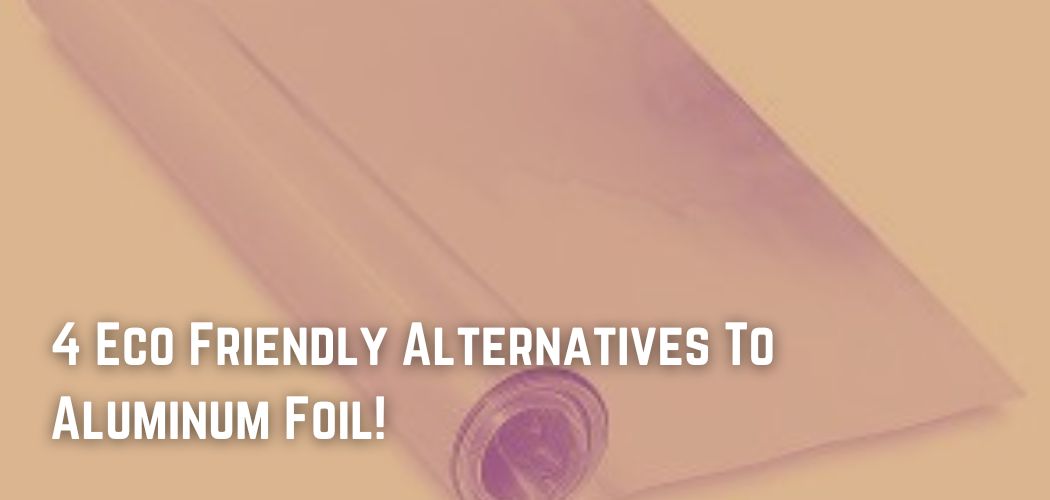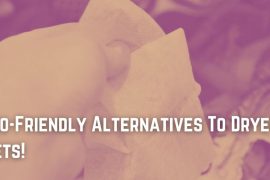Aluminum foil is a kitchen powerhouse, used for everything from high-temperature cooking to food storage. You don’t know it, but this tool is also bad for the environment and your health in ways you don’t know about.
There are several eco-friendly alternatives to aluminum foil that deserve a spot in your kitchen arsenal. Aluminum foil, often known as tin foil, is a malleable metal alloy that is rolled into thin sheets that may be trimmed to the necessary dimensions.
Aluminum sheets have a variety of functions, but in the kitchen they are often used as food storage wrapping or to line or cover food pans for baking, as the metal can survive the high temperatures of ovens.
In order to make aluminum ingots, bauxite ore is mined, mixed with different chemicals, and heated at high temperatures. The ingots are then fed through giant rollers to produce sheets of aluminum foil.
Alternatives Of Aluminum Foil Used In Cooking
If you only want to grill, roast, or bake with foil, you need a material that can handle high temperatures and won’t stick to food. Using stainless steel grill baskets (also called “grill tops”) makes it easier to grill and roast in a way that is good for the environment.
Simply place the basket on the grill rack and arrange the food on top. Once the food is done cooking, you can move the whole basket to where it will be served without having to balance plates.
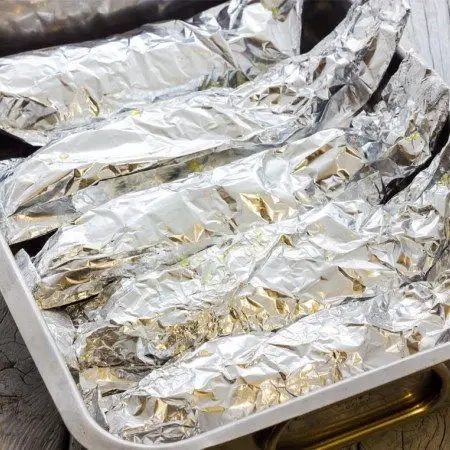
They are perfect for cooking shrimp and asparagus, which can fall through a standard barbecue grate.
A cast-iron skillet coated with a large amount of cooking oil should be enough for stovetop or oven cooking. However, it is not the optimal method for cooking acidic foods because of the undesirable odors that seep from the pan.
It May Be Dangerous To Health
You go for it when you need to cover an oven-baked lasagna, package leftovers, or cover a fresh salad (after tossing it with eco-friendly bamboo salad servers, of course!). However, aluminum foil has several disadvantages.
Some studies show that using tin foil causes our bodies to absorb more aluminum, which is bad for our health. According to sources, metal containers, cooking utensils, and aluminum foil all leach aluminum into food.
Even though the amount of aluminum we are exposed to is considered safe, the website says that people with Alzheimer’s have more aluminum in their bodies.
Seaweed
Seaweed is another alternative to foil composed primarily of natural components. The key piece of the puzzle is Ooho, which is a membrane made from seaweed extract that can be eaten and breaks down naturally.
It doesn’t have any natural tastes, so it won’t change how your dish tastes. Simply moisten it, wrap it around your favorite cuisine, and cook as usual.
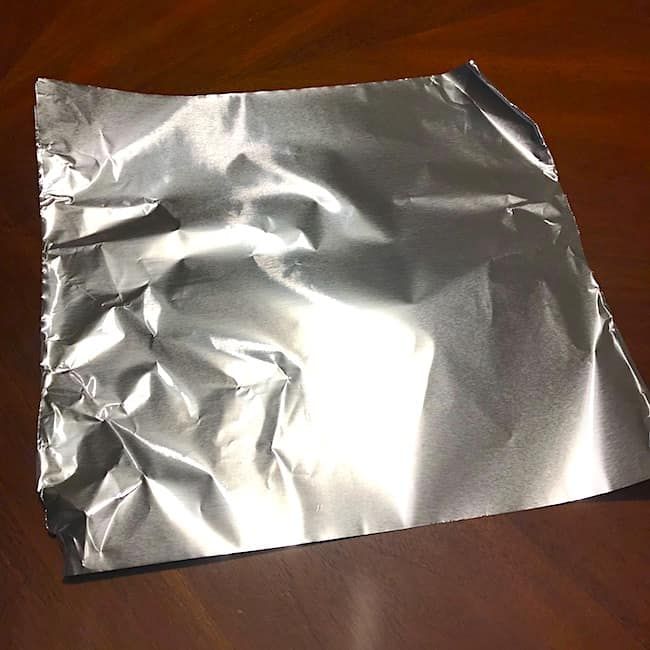
Seaweed wraps may also be used to store food, although they should not be kept for too long. Despite being treated to prevent quick decomposition, they might nevertheless develop a foul odor. Seaweed wraps should be reserved for fish with a similar aroma.
Beeswax Food Wraps
Reusable linen food wraps, which can be laundered and reused for years, are one of the most eco-friendly alternatives to aluminum foil as a food storage cap or wrap.
Most of the time, these wraps are made of cotton or beeswax. They have a stretchy elastic edge or become flexible when wet, which makes it easy to stick them to the edges of pots and plates to store food.
Covers made of cloth and beeswax also come in a wide range of styles and designs that make them a nice addition to any kitchen.
Silicone
Silicone is used to make a lot of kitchen items, like baking sheets, chopping boards, trays, bowls, cupcake wrappers, and lids.
It is an extremely robust, heat-resistant, and dependable substance. Most of the items in this category are made of food-grade silicone, but it’s a good idea to check.
A silicone mat eliminates the need for disposable baking sheet liners such as aluminum foil or parchment paper. It may be reused and is simple to clean.

When baking or cooking with silicone, don’t use temperatures of 480 degrees Fahrenheit or higher. At these temperatures, small amounts of chemicals can be released.
Although it is a more environmentally friendly alternative than plastic, it is difficult to recycle, and most recycling facilities do not accept it.
Fabric Food Wrapping
Fabric covers for food are a great alternative to aluminum foil for keeping food fresh and keeping bugs away.
You can either construct your own fabric food coverings from old tea towels or organic cotton T-shirts, for instance, or you can purchase them online.
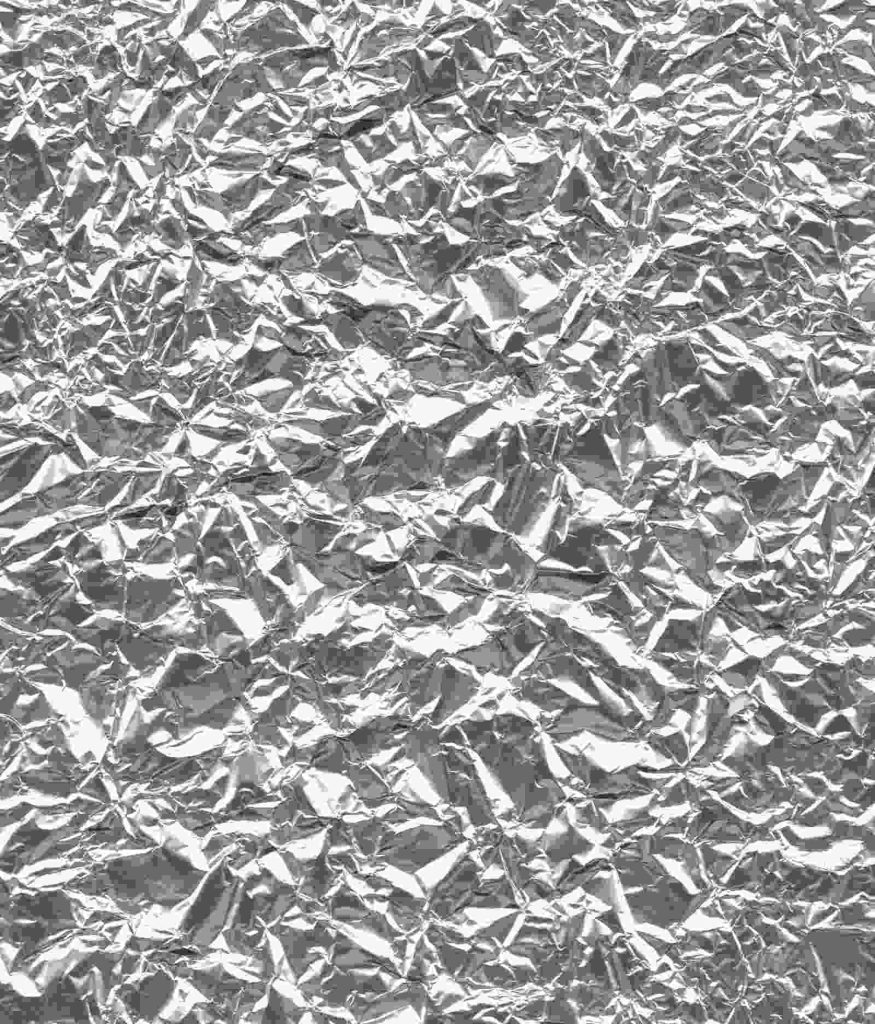
They are available in a variety of sizes and shapes, allowing you to easily find one that fits the food storage solution you are attempting to cover.
Simply wrap the bowl, plate, or dish in the cloth and attach it with twine or an elastic band. Fabric food covers can be machine washed and reused multiple times. They will endure for years!
Conclusion
Technically, aluminum foil is recyclable, but not endlessly. However, contaminated aluminum foil, like paper plates, is not recyclable when soiled with food and grease. Even if it is clean, most recycling centers will not take this material.
If you often use aluminum foil, there is a good risk that it ends up in a landfill, even if you sort it and place it in the recycling bin. It will take around 400 years for aluminum foil to biodegrade entirely in a landfill.
